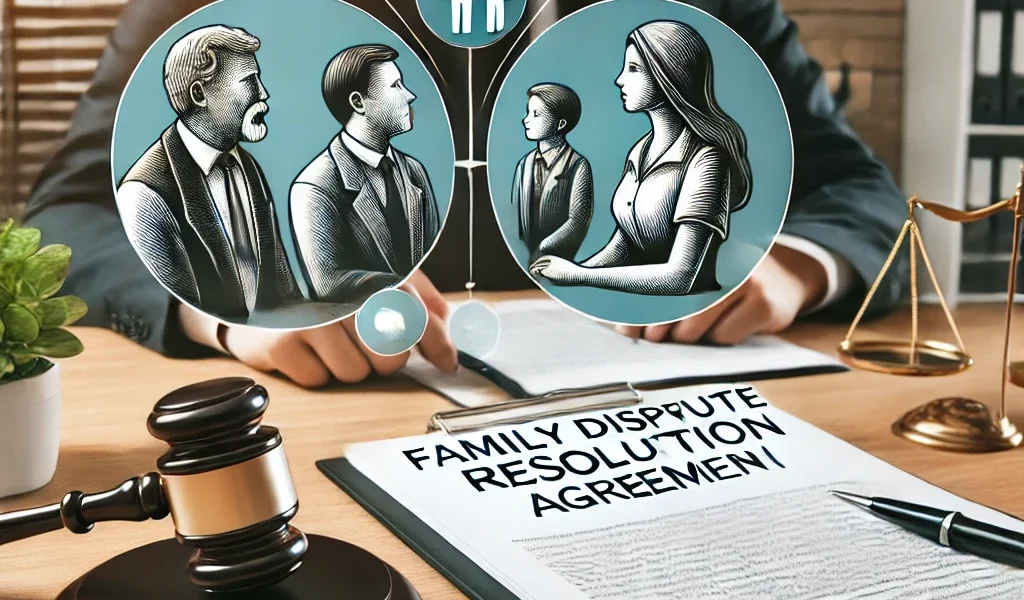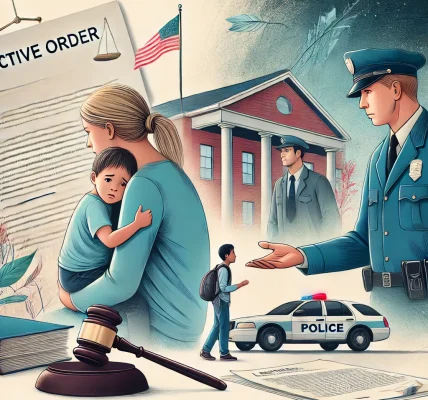Introduction
Family disputes are common and can arise due to financial disagreements, parenting conflicts, inheritance issues, or relationship breakdowns. While court proceedings can resolve these disputes, they are often expensive, time-consuming, and emotionally draining. Fortunately, there are alternative legal methods to handle family conflicts without resorting to litigation. This article explores effective, legally sound ways to resolve family disputes while maintaining relationships and avoiding the courtroom.
Benefits of Resolving Family Disputes Outside of Court
Handling family disputes outside of court has several advantages, including:
- Cost-Effectiveness: Court cases can be expensive due to attorney fees, court fees, and other related costs.
- Time Efficiency: Legal proceedings can take months or even years, whereas alternative resolution methods are generally faster.
- Confidentiality: Court cases are often public records, while private resolutions keep matters discreet.
- Better Relationships: Litigation can strain family ties, whereas alternative methods encourage cooperation and mutual understanding.
Alternative Dispute Resolution (ADR) Methods
Several legal methods can help resolve family disputes without court intervention. The most common include mediation, arbitration, collaborative law, and negotiation.
1. Mediation
Mediation is a widely used method for resolving family conflicts without court involvement. A neutral third party (the mediator) facilitates discussions between the disputing parties to help them reach a mutually acceptable agreement.
How Mediation Works:
- Both parties voluntarily participate in mediation.
- The mediator does not make decisions but helps facilitate a fair discussion.
- The goal is to find a solution that benefits all parties.
- If an agreement is reached, it can be legally documented and enforced.
When to Use Mediation:
- Divorce and separation issues (e.g., child custody, property division).
- Disputes between parents and children.
- Financial conflicts within the family.
2. Arbitration
Arbitration is another effective ADR method where a neutral arbitrator hears both sides and makes a binding decision. It is similar to court proceedings but is more flexible and private.
How Arbitration Works:
- Both parties agree to submit their dispute to an arbitrator.
- The arbitrator reviews the case and makes a legally binding decision.
- The decision can be enforced like a court judgment.
When to Use Arbitration:
- Property disputes.
- Family business conflicts.
- Disagreements over financial support or division of assets.
3. Collaborative Law
Collaborative law involves each party hiring a lawyer trained in conflict resolution to negotiate a settlement without going to court. Both parties and their lawyers agree in writing to resolve the matter through cooperation.
How Collaborative Law Works:
- Each party has legal representation.
- Lawyers facilitate negotiations to find a fair settlement.
- If negotiations fail, both lawyers withdraw, and new legal counsel must be hired for court proceedings.
When to Use Collaborative Law:
- Divorce and custody arrangements.
- Disputes over prenuptial or postnuptial agreements.
- Property and inheritance disputes.
4. Negotiation
Negotiation is the most informal way to resolve disputes without court intervention. It involves direct communication between the parties or their legal representatives to reach an agreement.
How Negotiation Works:
- Both parties discuss the issue and propose solutions.
- Lawyers may assist in structuring agreements.
- If successful, a written agreement is created and can be legally enforced.
When to Use Negotiation:
- Child support modifications.
- Parental responsibilities and visitation schedules.
- Disputes over financial responsibilities.
Legal Considerations in Out-of-Court Settlements
When handling family disputes outside of court, it’s crucial to ensure the process is legally binding and enforceable.
1. Drafting Legal Agreements
Once an agreement is reached, it should be documented in writing. A legal professional can help draft an agreement to ensure clarity and enforceability.
2. Reviewing Agreements with a Lawyer
Before signing any legal documents, consulting a family law attorney can help ensure fairness and legality.
3. Ensuring Compliance with State Laws
Each jurisdiction has specific laws governing family disputes. It’s essential to ensure that any agreement complies with state regulations to prevent future disputes.
Conclusion
Family disputes can be challenging, but court proceedings are not always the best solution. Mediation, arbitration, collaborative law, and negotiation offer effective ways to resolve conflicts while preserving relationships and reducing costs. Seeking legal guidance during these processes can ensure fair and enforceable agreements. If you are facing a family dispute, exploring these alternatives can help you find a resolution that benefits everyone involved.




